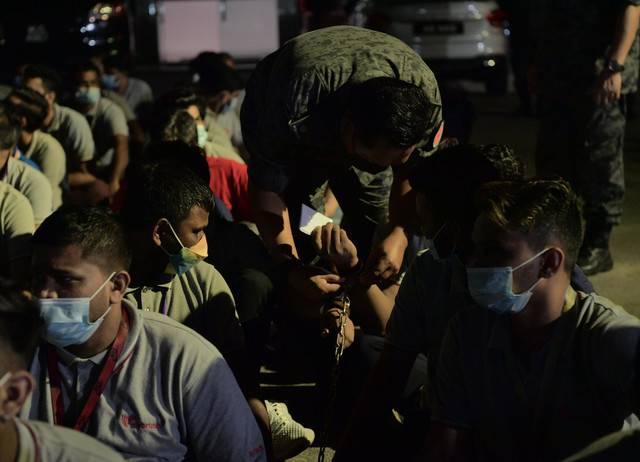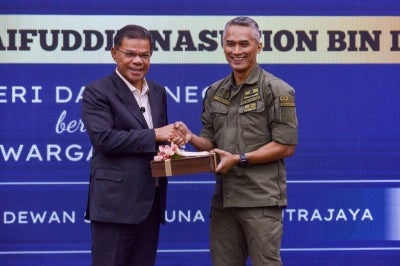Migrant hate speech: Dehumanisation breeds discrimination - Rights group
Malaysians and the government are urged to cease bias against migrants, challenge xenophobia and prioritise addressing issues related to anti-migrant sentiments.

SHAH ALAM - Amnesty International Malaysia condemns the recent surge of xenophobic and racist comments targeting migrants during the holiday seasons.
Its executive director Katrina Jorene Maliamauv urged Malaysians and the government to cease bias against migrants, challenge xenophobia and prioritise addressing issues related to anti-migrant sentiments.
She said the xenophobic, racist and hateful comments against migrants being in public spaces during holiday seasons were fostered by practices, policies and laws that dehumanised migrants and refugees.
She believed that the government and Malaysians have created a culture where many people only viewed migrants as worth their economic labour or through harmful labels such as 'legal or illegal' and 'PATI'.
"When the government and media normalise showing migrants being treated like cattle through mass raids, or when hateful speech demonising migrants and refugees are allowed, then we cannot be surprised that many people feel comfortable expressing these derogatory perceptions.
"Migrants and refugees are people worthy of joy, rest, love, friendship, leisure, community. This is a fundamental principle of human rights - all people, regardless of their nationality, documentation status, race, skin colour have the same, universal rights.
"If we keep creating a culture that denies some people their rights, even to basic things like celebrating during festivals, we are creating a culture that normalises dehumanisation in our society, which is very dangerous,” she added.
Maliamauv said it was also harmful to migrants and refugees to have to endure hate speech and discrimination.
"The government’s anti-migrant policies and the media’s bias against refugees and migrants need to be addressed swiftly and with urgency.
"The government has a crucial role in creating a culture of human rights for all, that is their responsibility under international human rights law. Malaysians have a role to play in stopping the racism and bigotry against anyone in our community," she added.
Echoing Maliamauv’s views, human rights advocate Ivy Josiah said the reality was that Malaysia relied on migrant workers for various sectors like household chores, factories, shops, construction and infrastructure projects as there was insufficient local labour force for these tasks.
"Migrant workers significantly contribute to our country's development, both in terms of human capital and infrastructure.
"Therefore, hateful comments on social media are unacceptable. We must reject prejudice and racism in our interactions, educating people to appreciate migrants' contributions economically and culturally.
"It is unfair to consider Malaysian culture superior to others like Indonesia, Bangladesh, or Pakistan," she said.
Josiah also said that while some Malaysians may harbour a superior attitude, she believed most of them were not racist or hateful.
Download Sinar Daily application.Click Here!















